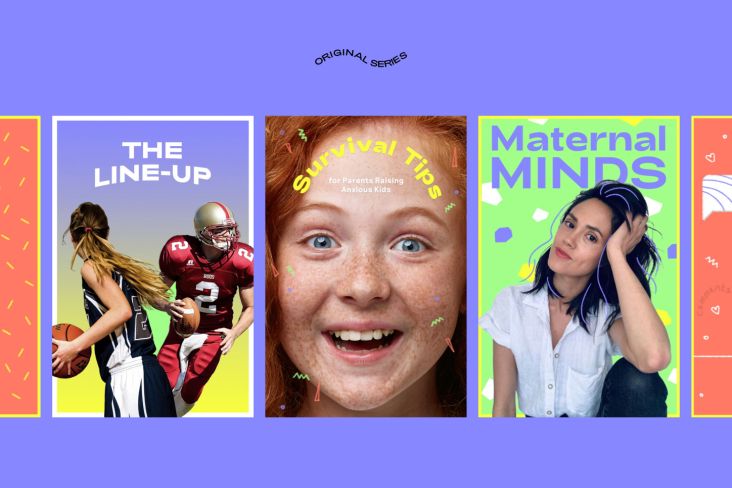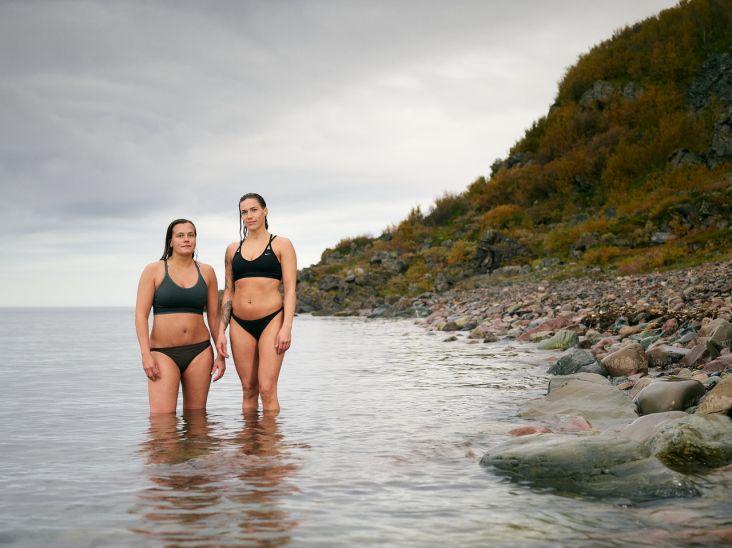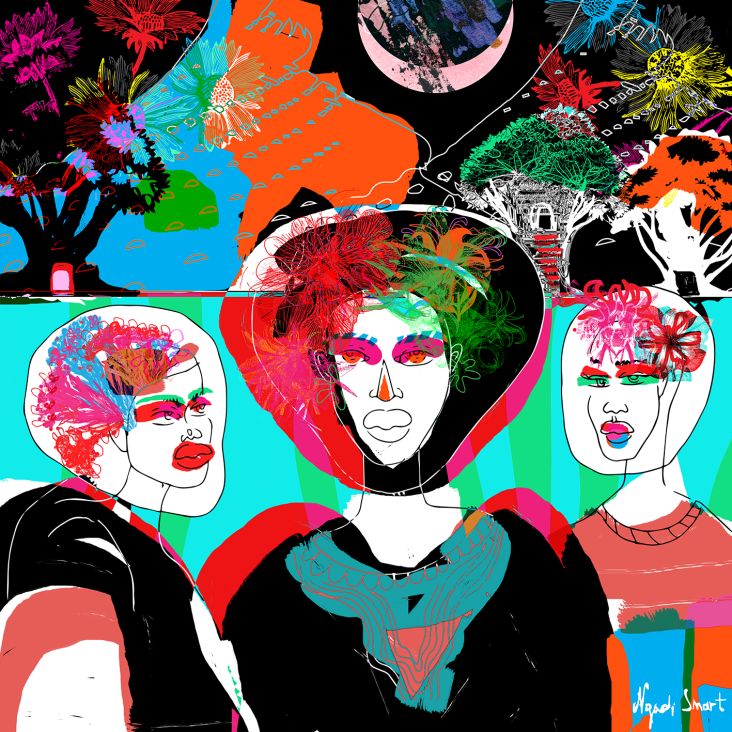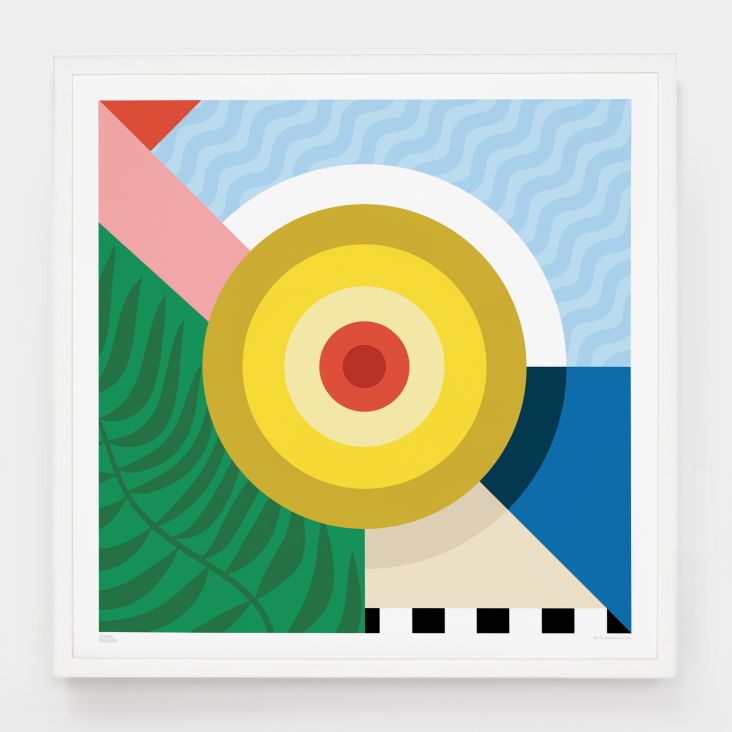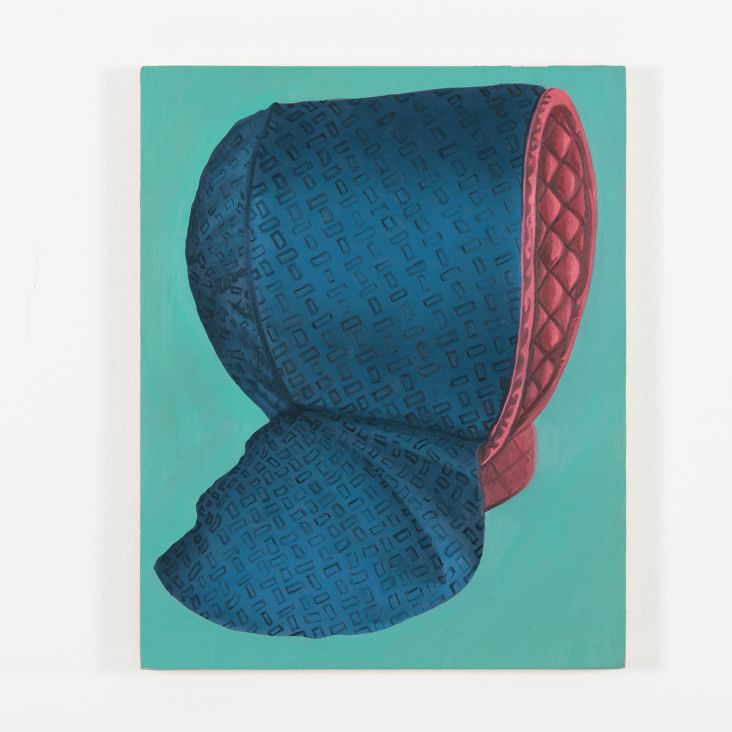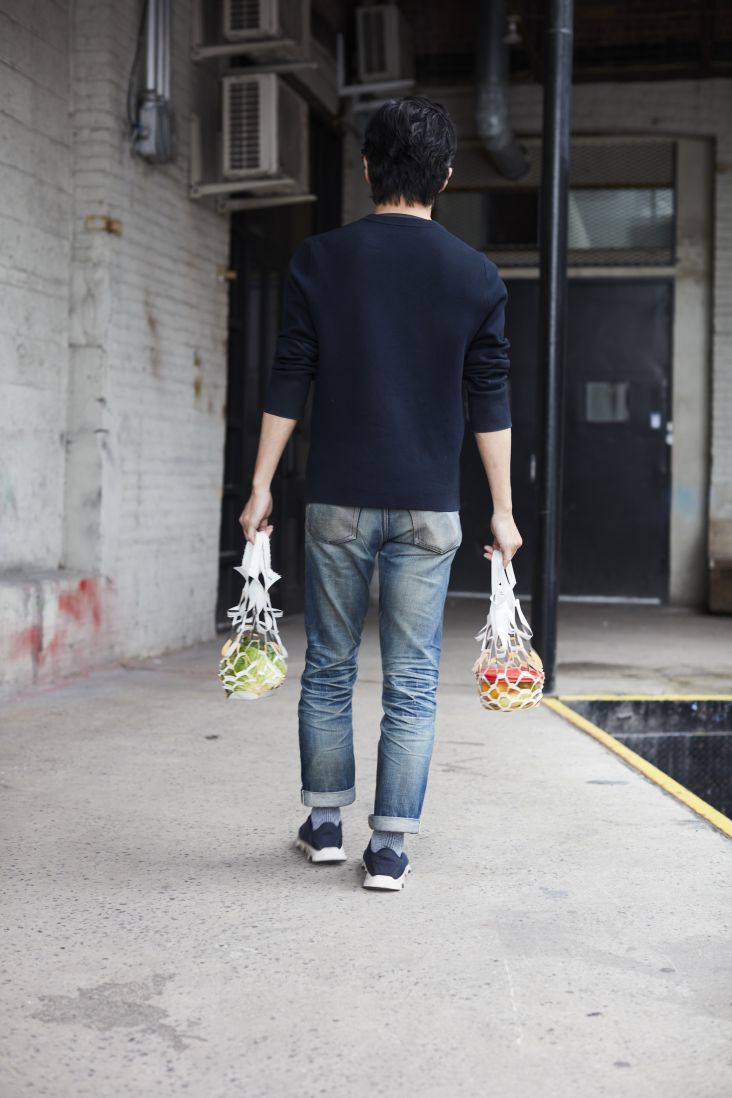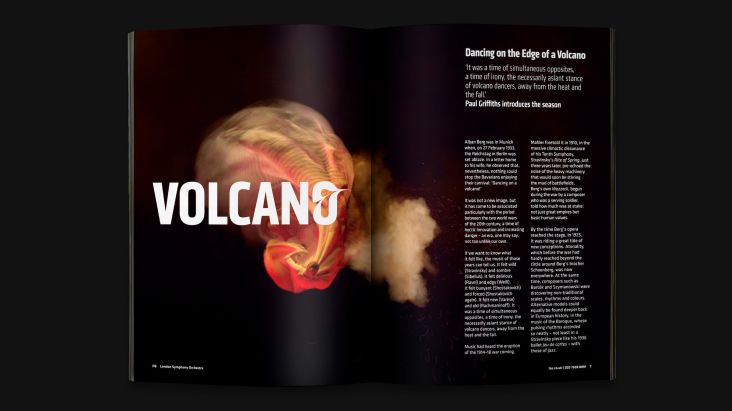Viktorija Semjonova on surviving as an illustrator during challenging times and why kindness will save the day
Viktorija Semjonova is a Latvian born, London-based illustrator who came to the UK to study illustration and graduated with first-class honours right at the height of the 2009 global financial crisis.
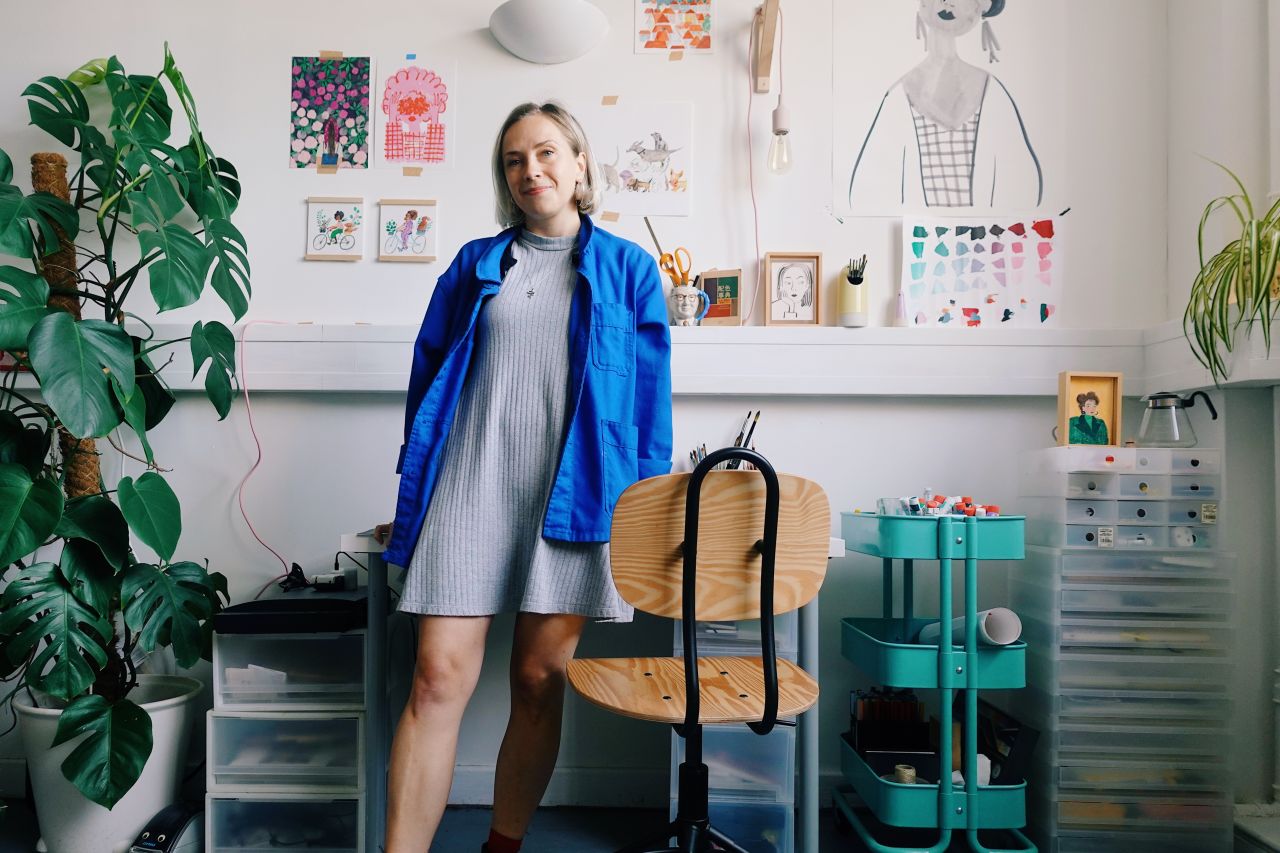
But despite a challenging start, the last decade has proved fruitful for Viktorija. Out of the recession came a wealth of opportunities for freelance artists such as herself. And the introduction of social media platforms like Instagram helped to raise her profile, win work (she's done things with Swatch, Penguin and Pinterest), and sell her prints, postcards and original artworks via her online shop.
We caught up with Viktorija to find out more about her journey so far and how she's navigating the fresh challenges of a new decade, from Brexit and diminishing social media engagement to the current global crisis.
How did you become an illustrator?
I always loved drawing and creating and making things. When I was a teenager, I went to an art school after regular school and hoped to have a creative profession but also earn some money. Interior design and architecture were super trendy at the time. Still, to study the fields, the courses didn't seem that interesting – architecture, for example, had building chemistry as a compulsory subject.
One day I was reading ETA Hoffman book with beautiful illustrations (black and white etchings), and it clicked, someone made the illustrations! Surely that is a great field to enter or at least to look into it. So I studied illustration at university and graduated straight into the 2009 global recession. It was tough to find any work, let alone be creative.
But I did a lot of random jobs until I opened an online shop and sold some cards and pins. Also, Instagram had just launched, so that massively helped. Out of the recession, came a lot of opportunities. It was such a good time. Many indie shops opened, it was easy and fun to share your work and behind the scenes on Instagram and connect with people from all over the world. I made pins and sold prints and started to plan and work on drawing more and finding commissions and making fewer products.
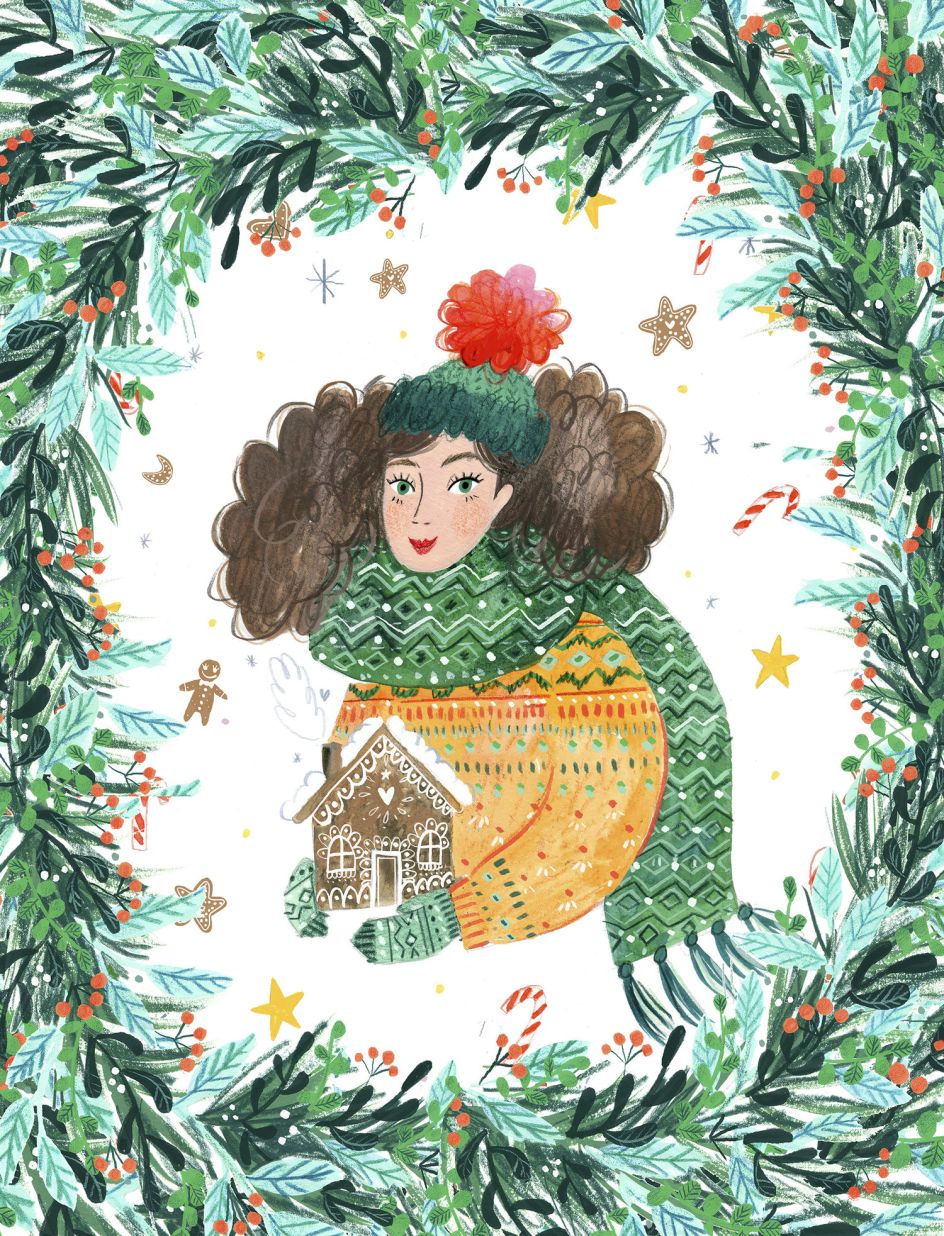
A series of Christmas baked goods illustrations for a bakery, Afternoon Crumbs
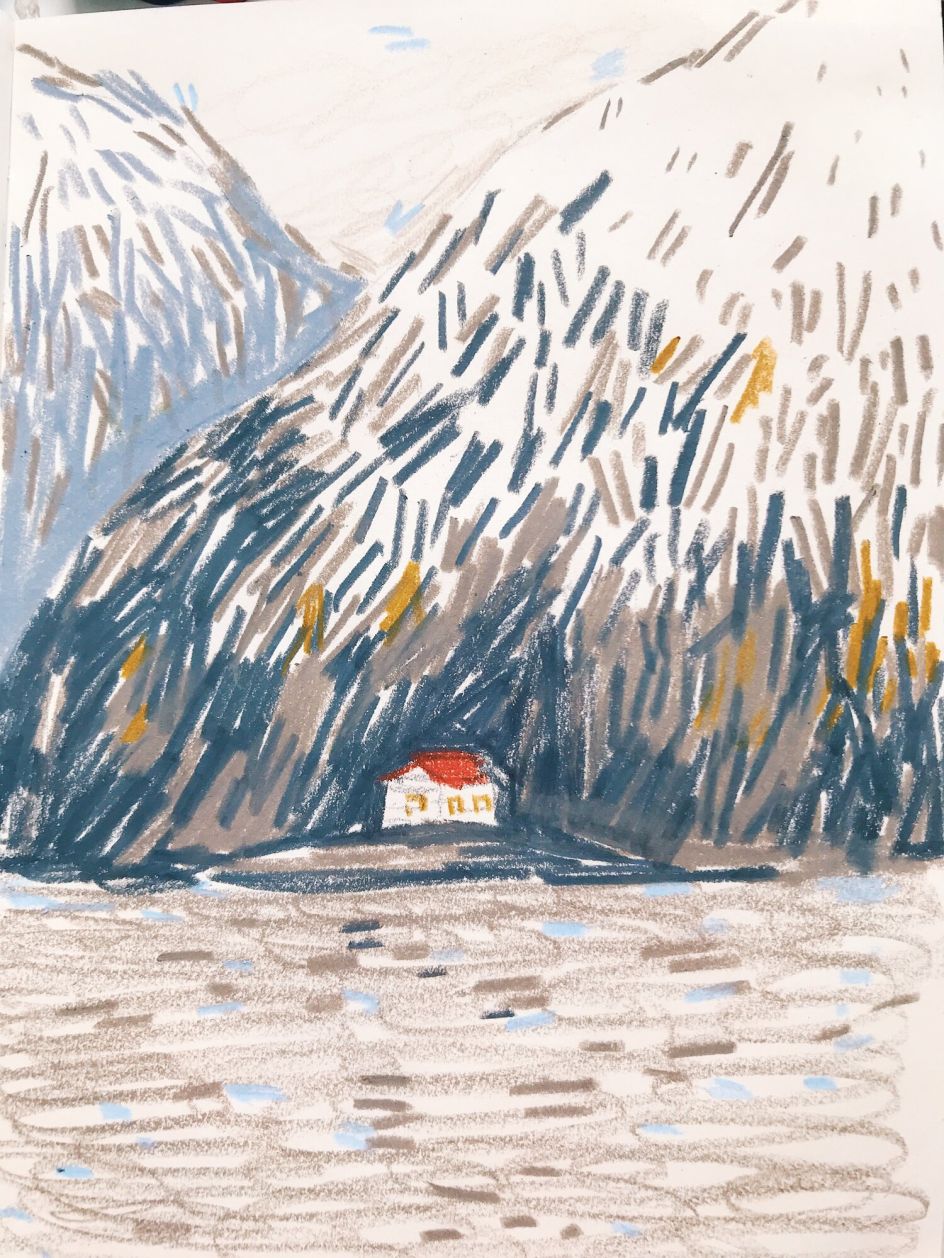
Personal work
You came to the UK to study. And you've stayed. What brought you here?
When graduating from high school, I had already decided to do illustration, but in Latvia at that time, there weren't any courses on the subject. You could do fine art or graphics at the Academy of Arts or Architecture, but that was about it. I thought the UK would be a fantastic place to live and study. I loved the idea of living abroad and couldn't wait to go on an adventure, the only other languages I spoke, apart from Russian and Latvian, was English, so it was an easy decision! I picked a university quite randomly and went to the University of Bedfordshire, where I studied illustration as part of the visual communications course and finished with a first-class degree.
That's excellent. You're based in London. Is it home now?
Yes! London is full of joy and incredible energy, this magical place where I just felt at home straight after stepping off the train. All kinds of weird are embraced, no one is judged, everyone is all shades of wonderful, whatever you like, whatever person you are, there is a space for you in London.
I've been living in London since 2009, and I think it's one of the most amazing cities in the world. After the Brexit vote though, I started to feel less and less at home, not as much in London but maybe in the UK and for the first time begun asking if it is the place I want to spend all my life here. It's complicated and emotional, and whatever happens, London always will be my home.
I'm sorry you feel that way. It's been a strange time, hasn't it! Has Brexit affected your work? And now the coronavirus, too?
I feel that work has slowed down in the last few years, and the amount of work or online orders was always linked to what happened in the world. Coronavirus, of course, is a whole new thing. Live drawing and some projects are on hold, but it's hard to tell now, and by following the news, I'm equally anxious about the future but also trying to take one day at a time and hope for the best for everyone.
I guess, like me, you've already been through a financial crisis, so you know how to survive?
I think being through a financial crisis and working from home before is helping with the current situation and self-isolating. Still, of course, it's all very different to whatever happened before. I am making sure to do some exercise, look after my mental health, talk to my family and friends, keep anxiety at bay and keep drawing, making things and not just staring at the news.
Can you describe your work?
My work is a lot about playful lines or colours and a sense of joy found in every day, small and mundane moments. I love capturing a fleeting moment or a sensation and hopefully making people who engage with my work feel the calm of slow moments and little pleasures. Be it colour, lines or theme of an illustration.
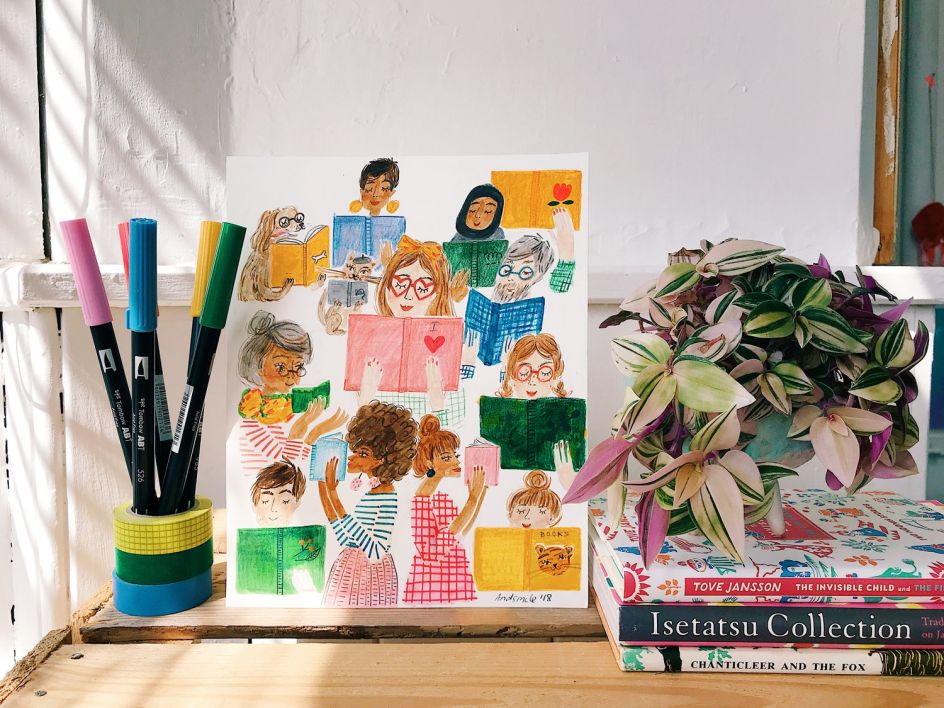
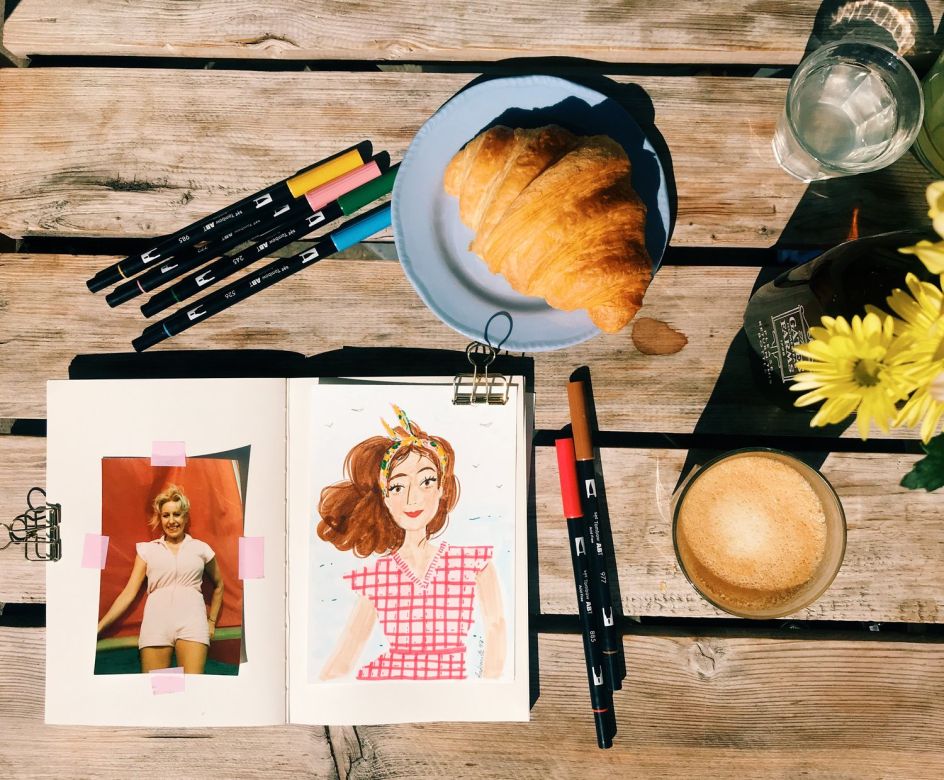
You love to do live drawings, too. Tell us more
This is true; I love to do live portrait drawings. It consists of two things I adore: drawing and fleeting connections, well three really: people, I love people. It's so rare in my life when I sit down and look at someone for fifteen minutes, and that's what I do at live events. A person would sit in front of me, look at my work, and I'll look at them, we have a chat. Quite often, the things they share are more intimate than the conversations I have with friends.
I love feeling connected with people, and I love getting to know people and I think it's essential for everyone to be seen and heard, in those fifteen minutes, there are no phones, no distractions. Often I keep in touch on social media with people I drew, a comment or a note, or sometimes even go for a coffee if our paths cross again. I meet and talk with people I would never come across in other areas of my life. They walk away with a portrait, and I keep the memory.
That's special. You also teach others how to draw, too. I'd love to improve. What quick tips can you share?
I love following your piano progress on Instagram Stories, and I think it's quite similar to drawing. First is consistency, set aside time, add it to the calendar (even if it's just 15 minutes a week) and stick to it. Secondly, do what you love and what brings you joy and what feels like play, even if you think you are terrible at it, indulge yourself. I'm a big believer that we should do things which bring us joy, even if we are shit at them – that's whether it's running, singing or drawing.
You work for yourself. How are you finding it?
I love it but sometimes hate it. And then I love it again. It's the best job ever, especially for my personality, as I hate authority and I don't think I would survive in a team environment (however, working in a studio with other people is the best thing in the world). I appreciate and don't take for granted all the good things which come with working for yourself. I also like the fact that if I feel like I become stagnant as a creative, I can change direction. I also have the freedom to say no, to try new things without asking for permission. It's tricky sometimes as I don't have anyone to ask advice from or tell me when I'm losing perspective.
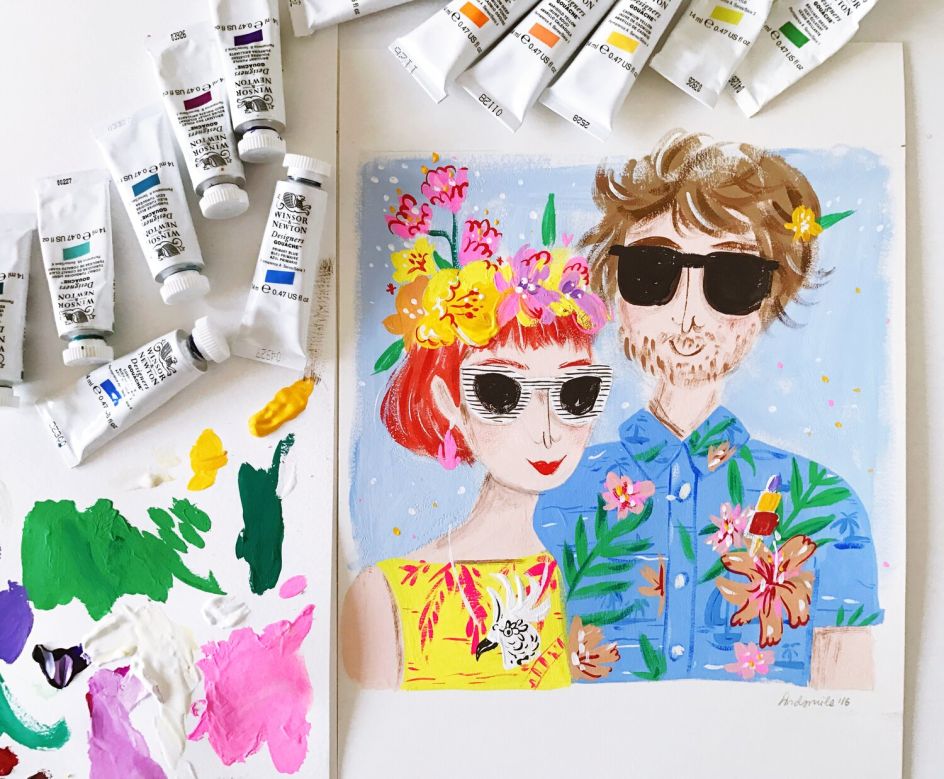
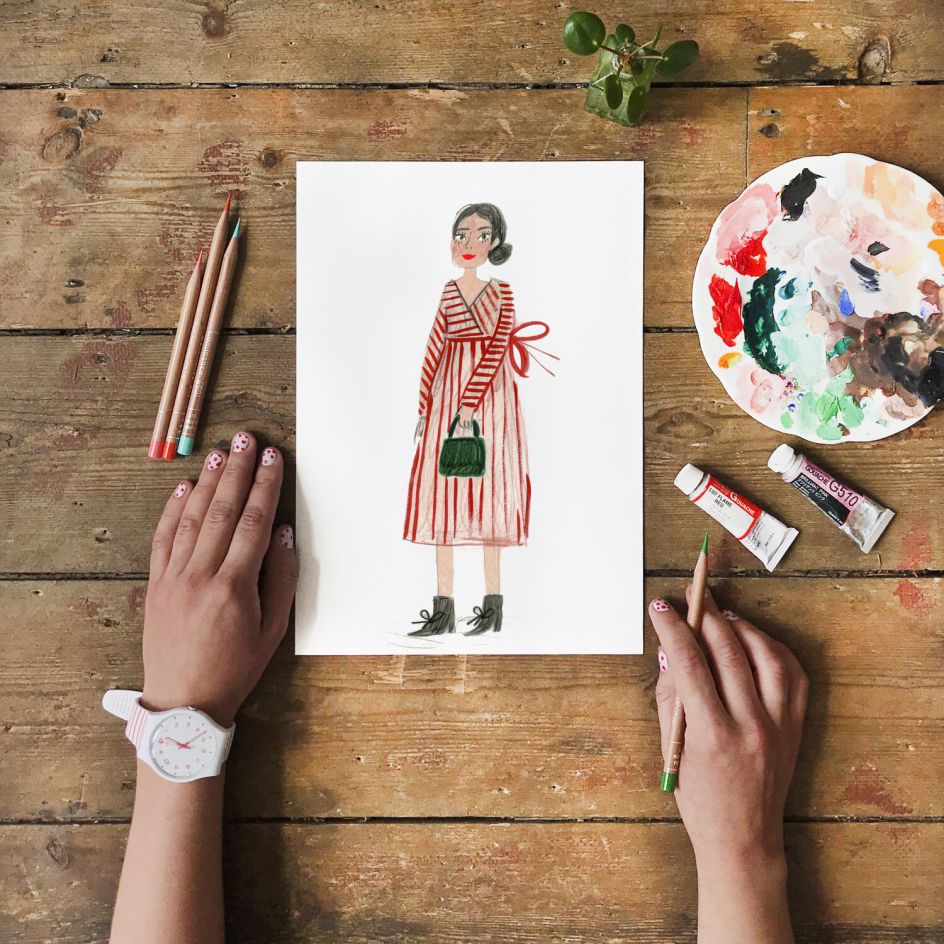
What challenges have you recently overcome?
I am working on accepting the quiet times, even though I've been full-time freelance for around six years. I used to get very stressed during quieter periods and start to hustle and lose the bigger picture. Now I'm working (quite well) at accepting these lull moments and using them to work on self-initiated projects and trying new things. And I'm prioritising exercise, building a routine to exercise enough to live a happy and pain-free, freelancer life.
What advice can you share with those wanting to follow in your footsteps?
Being a self-employed illustrator is a privilege which I don't take for granted. I appreciate it so much. I guess doing all the jobs, including those at an Amazon warehouse and in the service industry during my university years gave me a lot of motivation to keep going. But it comes with a lot of uncertainty; it's fantastic but also scary.
I think the only advice I can give now is to do what you love (not necessarily for money) at least a little bit a day. Make some space for yourself if possible, bring some tiny joys of that passion thing you love to do into your day, keep going, create things and don't give up, let that light and sparkle inside you take its space and grow.
You mentioned Instagram. How are you finding that platform these days?
Of course, the algorithm is not great. I loved it much more when it just started. But over the last few days the community and the amazing people I found through there are the support and the ray of light and positivity, bonding over uncertainty (also a ranting place), is quite remarkable.
I see so many people coming together, sharing what they can give. Whether that's nature walk videos, reading books, giving advice, giving their time, or offering a community and a space to come together when we all are self-isolating. It feels like a beautiful place to be and share small things.
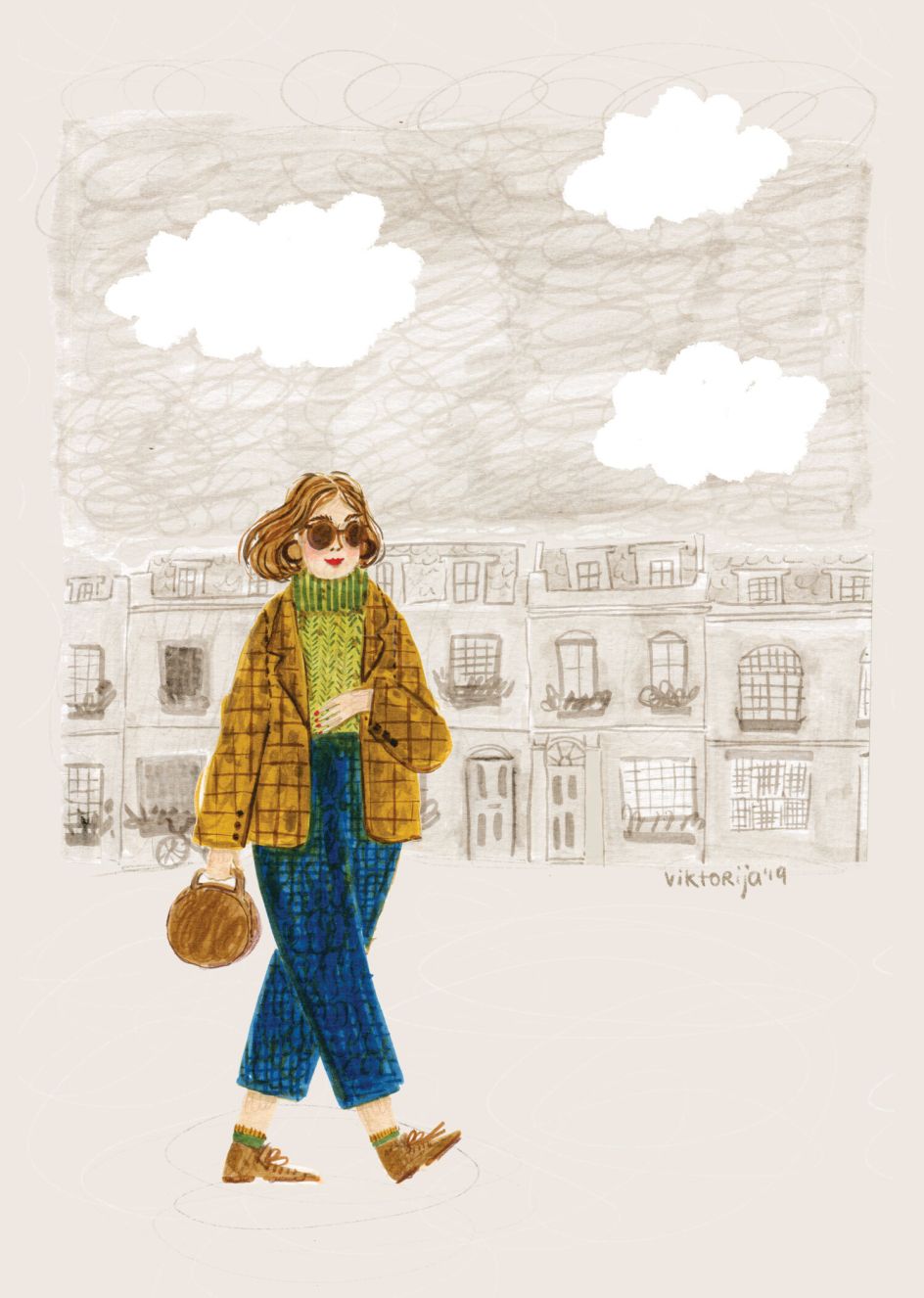
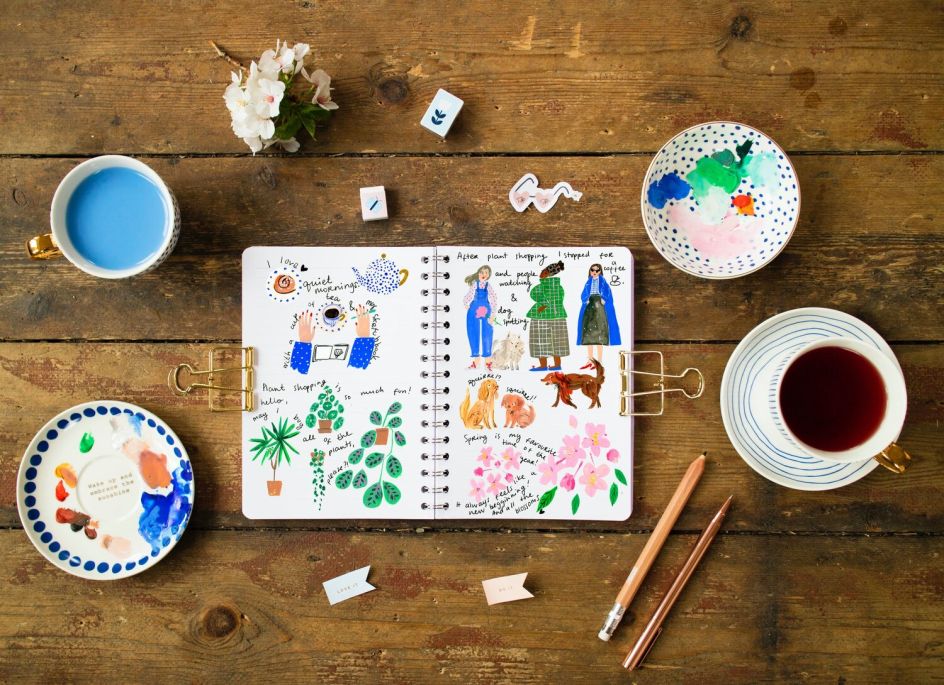
What else have you been doing to market yourself and survive?
Offering live illustration, teaching workshops, doing craft fairs, putting content online, being adaptable when income streams change, listening to what people say or want.
Maybe I'm affected by whatever is happening in the world. Still, I think the best thing is supporting other people and promoting other small businesses and creatives where you can. We are all in this together, and as some people say it's not always about you, sometimes it's just nice to be nice and to be honest the most exciting things came through that, the community, the support, knowing that you have the opportunity to make someone's day better, give them a bit of support. And in cases where I did not expect but needed a kind word or a share, people are there, and people are lovely and ready to lift each other up.
I think the best way to survive as a human, and as a creative, is to have that connection with others. Talk to people, connect and be vulnerable.

 for Creative Boom](https://www.creativeboom.com/upload/articles/06/063686a9a3b095b9b1f0e95df917ed4bd342be1b_732.jpg)


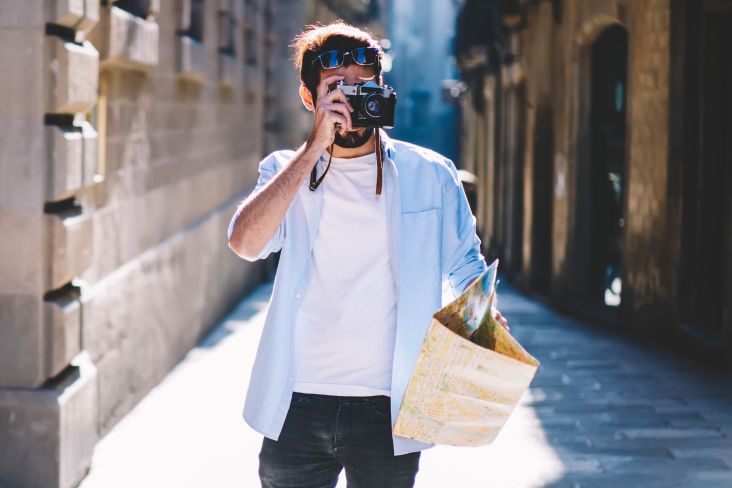
 using <a href="https://www.ohnotype.co/fonts/obviously" target="_blank">Obviously</a> by Oh No Type Co., Art Director, Brand & Creative—Spotify](https://www.creativeboom.com/upload/articles/6e/6ed31eddc26fa563f213fc76d6993dab9231ffe4_732.jpg)
 by Tüpokompanii](https://www.creativeboom.com/upload/articles/58/58684538770fb5b428dc1882f7a732f153500153_732.jpg)








